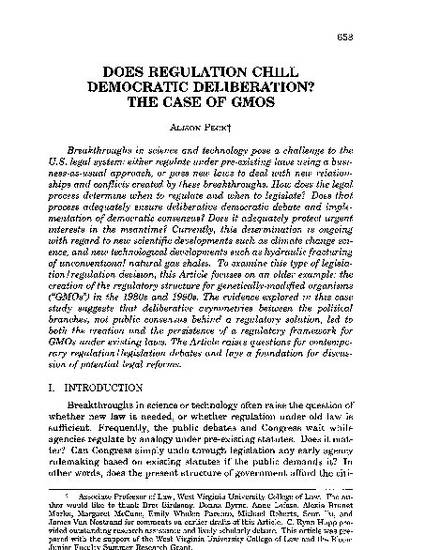
Breakthroughs in science and technology pose a challenge to the U.S. legal system: either regulate under pre-existing laws using a business-as-usual approach, or pass new laws to deal with new relationships and conflicts created by these breakthroughs. How does the legal process determine when to regulate and when to legislate? Does that process adequately ensure deliberative democratic debate and implementation of democratic consensus? Does it adequately protect urgent interests in the meantime? Currently, this determination is ongoing with regard to new scientific developments such as climate change science, and new technological developments such as hydraulic fracturing of unconventional natural gas shales. To examine this type of legislation/regulation decision, this Article focuses on an older example: the creation of the regulatory structure for genetically-modified organisms ("GMOs") in the 1980s and 1990s. The evidence explored in this case study suggests that deliberative asymmetries between the political branches, not public consensus behind a regulatory solution, led to both the creation and the persistence of a regulatory framework for GMOs under existing laws. The Article raises questions for contemporary regulation/legislation debates and lays a foundation for discussion of potential legal reforms.

Creighton University Law Review, “Does Regulation Chill Democratic Deliberation? The Case of GMOs” published in Vol. 46 (2013), pgs. 653-705, used with permission of Creighton University Law Review. Copyright © 2013 by Creighton University.